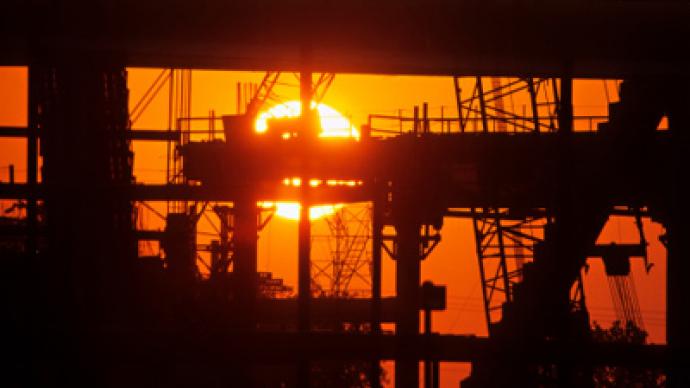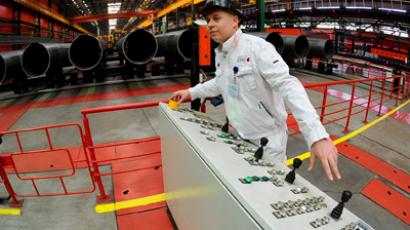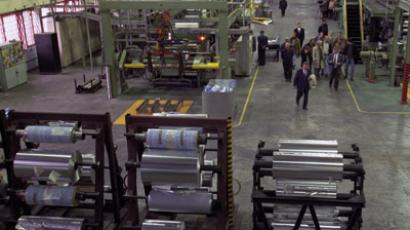PMI mixed bag: China up, eurozone upsets

The Purchasing Managers Indices around the globe show a mixed picture on global manufacturing activity. With euro zone results significantly down, and a mixed outlook for China and the UK investors are puzzled.
Dominic Wilson from Goldman Sachs says the PMI data issued on Monday will determine trend of global economy.“At the risk of oversimplification, if the ISM and global PMIs bounce convincingly, we think the market is likely to be able to make fresh highs. If instead we see a second month of declines, we are likely to turn more cautious”, he told Business Insider.China’s manufacturing got a mixed estimate on Sunday, as the official data for March showed its highest growth in a year to 53.1 from 51 in February. While the rival study by HSBC reported the index declined to 48.3 in March from 49.6 in February.Meanwhile most of European stocks opened higher on Monday inspired by positive official data on China’s manufacturing.Russia showed moderate growth of manufacturing activity as its PMI grew 50.8 from 50.7, but it was still estimated at 52.2 in a long term, according to the report prepared by HSBC. The growth of new orders was enough to support manufacturing with new export orders increasing for the first time in four months. Unemployment grew slightly reflecting weaker growth.“If the growth of export orders continues, it could contribute to growth of domestic orders with a time lag,” says Alexander Morozov, the chief economist at HSBC Russia.“Current trends in Russian manufacturing remain unstable, while the slow growth of production and high risks is the most probable scenario for the short term”.Meanwhile the euro zone manufacturing activity worsened in March, marking the eighth month of shrinkage, according to the report, prepared by HSBC along with Markit financial information agency.The PMI data from the two strongest economies in the euro zone were quit disappointing as Germany dropped to 48.4 from 50.2 for the first time in 3 months. While French PMI, showed a big drop sliding to 46.7 from 50.0 with new orders falling sharply. This is the lowest level since June 2009. "There were further signs that the manufacturing malaise already exhibited at the periphery of the currency bloc was spreading to the core," said Markit about weaker German PMI.The Greek PMI showed some improvement from 37.1 to 41.8, but is still bellow benchmark 50.0 point, marking deep economic problems still. While Spanish PMI dropped to 44.5, the worst in 11 months and the worst decline in the euro zone. Italy remained flat from last month, at 47.9, slightly below the expected 48.0, showing the slowest pace of decline since goods production began falling last October 2011.The UK in contrast bucked the European trend as its PMI index jumped to 52.1, the highest reading in 10 months. While the Irish PMI performed better than expected with rising to 51.5 above the no-change 50 mark from 49.7 in February.














